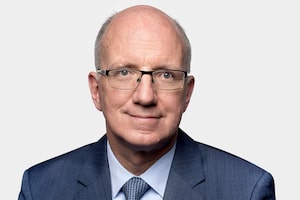
Battered cruise line Carnival Corp. is likely to face a US$1.7-billion cash shortfall this year, which would breach covenants on its bank loans, according to analyst Tim Conder at Wells Fargo & Co.Scott Strazzante/The Associated Press
For companies forced to sell stock in markets gripped by a pandemic, the cure could be almost as bad as the disease.
The corporate world is beginning to split into two groups: strong companies that can continue to borrow money and debt-heavy businesses that are losing access to credit markets. Analysts are starting to consider how highly leveraged companies will raise money in sectors that have been hit hard by COVID-19, such as cruise lines, oil and gas producers, hotels and retail chains.
Finance experts say existing shareholders face massive dilution – each share they own will suddenly represent a far smaller stake in the business – as companies scramble to fix busted balance sheets by selling equity.
Battered cruise line Carnival Corp., for example, is likely to face a US$1.7-billion cash shortfall this year, which would breach covenants on its bank loans, according to analyst Tim Conder at Wells Fargo & Co.
Florida-based Carnival’s share price has already fallen to US$11 from US$50 in recent weeks, which gives Carnival a US$8-billion market capitalization. In a report on Monday, Mr. Conder recommended steering clear, because “we feel Carnival will soon need to issue US$4- to US$5-billion of equity, which will be meaningfully dilutive to existing shareholders.”
Canada’s energy companies face the same daunting prospect: rolling out stock sales when share prices are testing record lows, in order to pay back creditors. Across the oil patch, producers and services companies have slashed capital spending, cut dividends and shut down share buy-back programs in order to conserve cash and avoid issuing equity while facing both a global pandemic and a crippling oil price war.
In the previous financial crisis, in late 2008, Canadian equity sales fell quiet for about three months, then rebounded with a flurry of stock offerings in 2009. Investment bankers expect the same pattern will play out in the current downturn, with commodity-based companies raising capital once there is a consensus that the stock market’s worst days have passed.
Companies in Canada and the United States with relatively strong balance sheets are still able to raise capital by tapping fixed income markets, so they can avoid selling equity after their stock prices slump. But their cost of borrowing has risen in recent weeks, owing to uncertainty over the impact of COVID-19 on future financial results.
Even so, intervention by central banks in credit markets has driven down yields on government bonds, so fixed income markets continue to welcome offerings from investment-grade companies.
Last Friday, BCE Inc. raised $1-billion by selling medium-term notes, debt that comes due in five years’ time. Investors were willing to buy the note issue, which was priced to yield 3.68 per cent, even though the telecommunications giant acknowledged in a news release announcing the offering that the impact of COVID-19 on its results “could be material.”
In Montreal-based BCE’s previous medium-term note sale, last September, the company sold $550-million of 10-year notes that were priced to yield 2.92 per cent, a significantly lower rate than it is currently paying to borrow money.
“All Canadian telecom operators have strong balance sheets and substantial access to liquidity,” analyst Drew McReynolds at RBC Dominion Securities Inc. said in a report on Friday. “The Canadian telecom sector is a constructive place to hide for investors.”
Where possible, companies are taking steps to line up additional credit, as an alternative to selling stock. Property owner Summit Industrial Income REIT doubled the size of its credit facility on Monday by setting up a $300-million unsecured line with a syndicate of four banks led by Bank of Montreal and National Bank of Canada.
In the face of what he called “unprecedented issues,” Summit chief executive Paul Dykeman said, “this new facility provides us with a significant increase in financial resources and flexibility.”
But borrowing costs are soaring for non-investment grade companies. Derek Holt, head of capital markets economics at Bank of Nova Scotia, said in a report on Monday that the yield spread between 10-year high yield U.S. corporate bonds and the 10-year U.S. government bond jumped to 10 percentage points last week, up from a spread of just over three percentage points earlier this year.
Your time is valuable. Have the Top Business Headlines newsletter conveniently delivered to your inbox in the morning or evening. Sign up today
 Andrew Willis
Andrew Willis